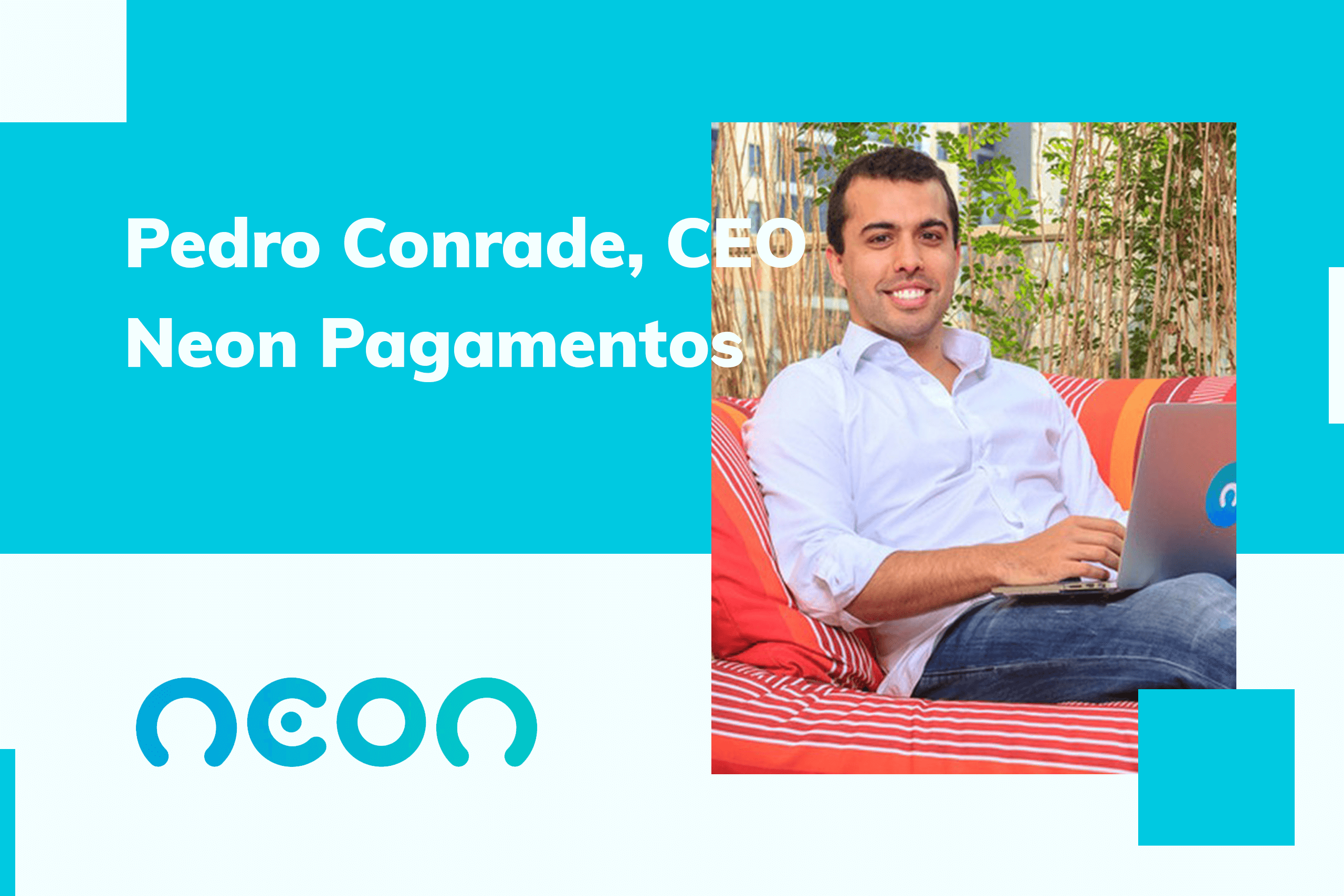Pedro Conrade is CEO and founder of pioneer Brazilian fintech, Neon Pagamentos, which today has over 2 million users and is backed by blue-chip funds such as Monashees. In this interview, he discusses the key reasons behind Neon’s success, its greatest challenges and its plans for the future.
Leaders League. What is Neon and what does it do? How does it stand out in the market?
Pedro Conrade. Founded in 2016, Neon Pagamentos is the first Brazilian fintech to offer 100% digital accounts. Our mission is to bring technology and design together to provide people with control over their financial lives. Today, we are the most complete digital account alternative in the market, with all the features of a traditional bank but without the queues and monthly fees. One of Neon’s main differentials is that it was created by a client and is designed for our clients – this way, our entire team is focused on creating products and services which meet the needs of our users and which provides them with the necessary tools to wield control over their finances.
What are the key factors behind Neon’s success? Could you tell us about the company’s journey from foundation to present day?
Neon was created due to a frustrating episode which I experienced as the client of a traditional bank. I went into overdraft due to R$1 and payed an enormous fee which I did not even know existed. From then on, I began to question the services offered by banks and the fees charged and wondering if there was not another way of supplying the same product in a way which really helped people to take care of their money. All of Neon’s steps are taken thinking about what would be best for our clients – what they need, what they would like, which is the best format, what is a fair price to charge them – and I believe this has been the secret to our success up to now. Our products are designed for clients, by clients, which want to wield more power and control over their finances.
How can the Brazilian government create a better environment for startups and fintechs?
We support the Central Bank’s regulations and believe it is necessary to establish service, quality and safety standards in the sector. At the same time, we are sure that regulations cannot contain innovation. Many disruptive ideas are born from solving a problem and we believe in this cycle to promote a great transformation in the Brazil of the years to come.
In 2018, Neon doubled its client base and reached over 2 million users. How have the last 12 months transformed the company?
2018 was a landmark year in Neon’s history. One day before the Central Bank intervened at our affiliated bank, we had announced one of the best Series A funding rounds in the history of Brazilian startups. In the following months, we showed that fintechs are resilient and here to stay. As well as beginning to issue credit cards, we launched Neon Pejota, an account for small-to-medium companies and more than doubled our client base. In 2019, we have continued to significantly grow and have new products to be launched.
What are Neon’s plans for the second semester of 2019 and beyond?
Our main goal over the coming months is to continue Neon’s cycle of growth and innovation of the last three years. We want to be the best digital account of the country, offering everything a Brazilian needs to have control over his financial life.
What is the future of the startup and fintech ecosystem in Brazil? Will this intense rhythm of new unicorns continue and is it sustainable?
Brazil is going through an important moment of inflexion. In recent years, the startup market has consolidated itself and, today, we think far beyond the next unicorns: What are the companies which will provoke the greatest disruption in their industries? We have some recent examples proving this thesis: the successful IPO of Stone, at the end of last year, and the announcement of SoftBank’s $5 billion innovation fund, totally focused on Latin America. Moreover, our fintechs now serve as benchmarks and inspiration around the world, to startups which are beginning to proliferate in different markets and industries such as healthtech, edtech, logtech and more.
Read from the original source: Leadersleague





Posted by
Marta Hi! I'm Marta, project manager for Luminary Chiefs. Here to help, post and make sure everything looks great for you.